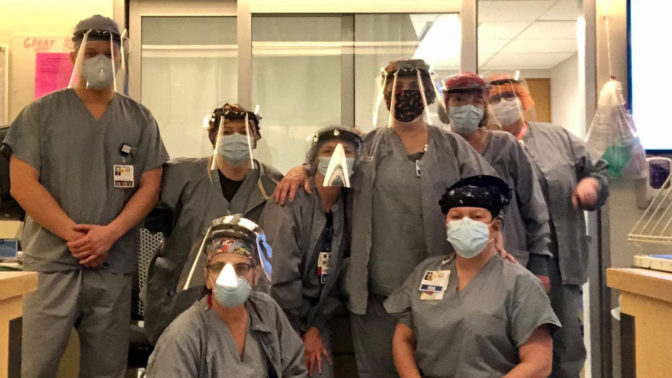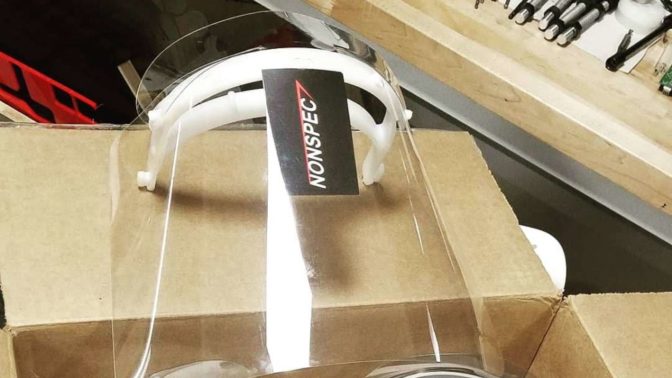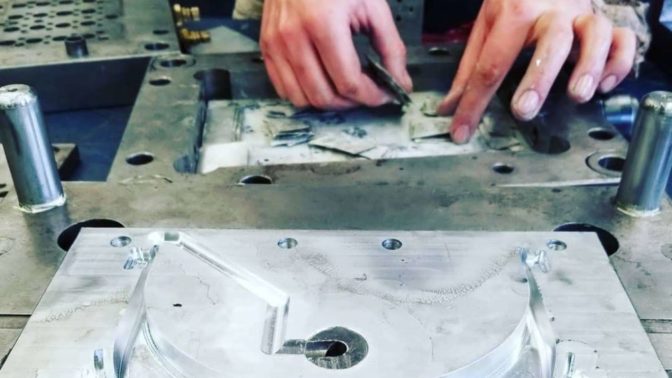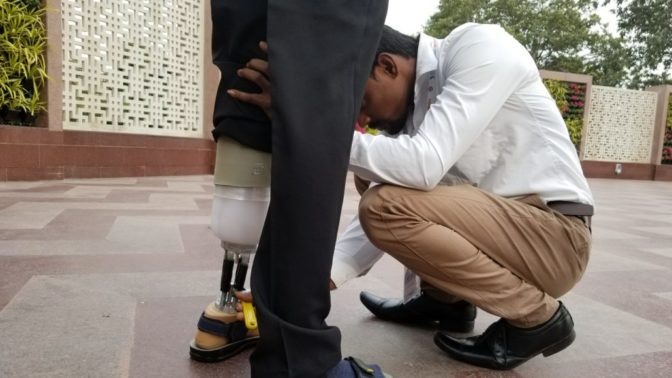COVID-19 success stories – a blog series: Nonspec

In this blog series, we explore how some of our epNetwork members have dealt with/been dealing with the COVID-19 pandemic in their work and in their communities. Next in the series is Nonspec.
Siemens Stiftung: In general, how have you and your team been able to manage the uncertainties and challenges that have come with the COVID-19 pandemic so far? Both personally and from a business angle.
Nonspec: Working from home has been a big transition for our team, further blurring the lines between work and life, which was already not easy while running a startup. However, as individuals, we have picked up some good habits that have helped us realize how resilient we are. We go for more team walks, while distancing, and have each picked up a mediation practice to reflect on what we are grateful for and how to be present every day. One team member contracted and recovered from the virus, and we supported them through the process, dropping off supplies and staying connected to help them through. From the business side, one of our regional teams shut down, due to inability to continue working with customers safely. The team has luckily found other work to tide them over, but it did stifle our growth in that market at least temporarily.

Siemens Stiftung: Have you been able to continue operating like you were prior to the pandemic? If so, could you elaborate on reasons for your steady success throughout this time? If not, what changes have you made in order to remain in operation?
Nonspec: In general, we still have access to our manufacturing space (at limited capacity) and have been able to scale up our manufacturing. Most things have continued as usual, using virtual meetings and email, but it did slow down our timeline a bit. In the downtime, we have sought more funding opportunities and investigated future market potential.
Siemens Stiftung: Has there been a need to pivot and completely work on a new product to support the COVID-19 relief efforts? If so, what have you developed and how has this helped people in need?
Nonspec: We pivoted for about 4 months to make face shields. With our design and manufacturing expertise, we were able to make an injection moldable face shield design and make 500 shields in a weekend and established touchless pickup and delivery via volunteers. We accomplished this by the first week in March (as fast as some large companies pivoting to make PPE). It was a whirlwind project that was able to help our local healthcare workers when they needed it most. Additionally, we open sourced our mold design and shared it globally (with the help of epNetwork)! One manufacturer even scaled it up to make thousands a day!

Siemens Stiftung: How has the pandemic affected your local community?
Nonspec: The Boston area has an active and committed medical community, dedicated to helping nationally and globally. It has been amazing to see the initiative, innovation, and support to and for the healthcare professionals. Many small businesses, especially restaurants, were very worried, but their patrons are continuing to drive business and keep them afloat. Overall, we have banded together to help food banks, healthcare workers, and the isolated. I suspect masks in crowded settings will be a typical accessory well into the future around here.

Siemens Stiftung: Do you expect there to be any long-term changes for your social business because of the pandemic? If so/not, how do you see it benefiting your work in the long run?
Nonspec: The situation has proven the need to further streamline the prosthetic fitting process, keep waiting rooms sparse, and direct interactions with clinicians more meaningful. We have been working to virtualize our service interactions, training, and support without compromising quality. We expect that our approaches will be adjusted and tested during these times and expect to see a lot being used to keep our customers safe into the future.